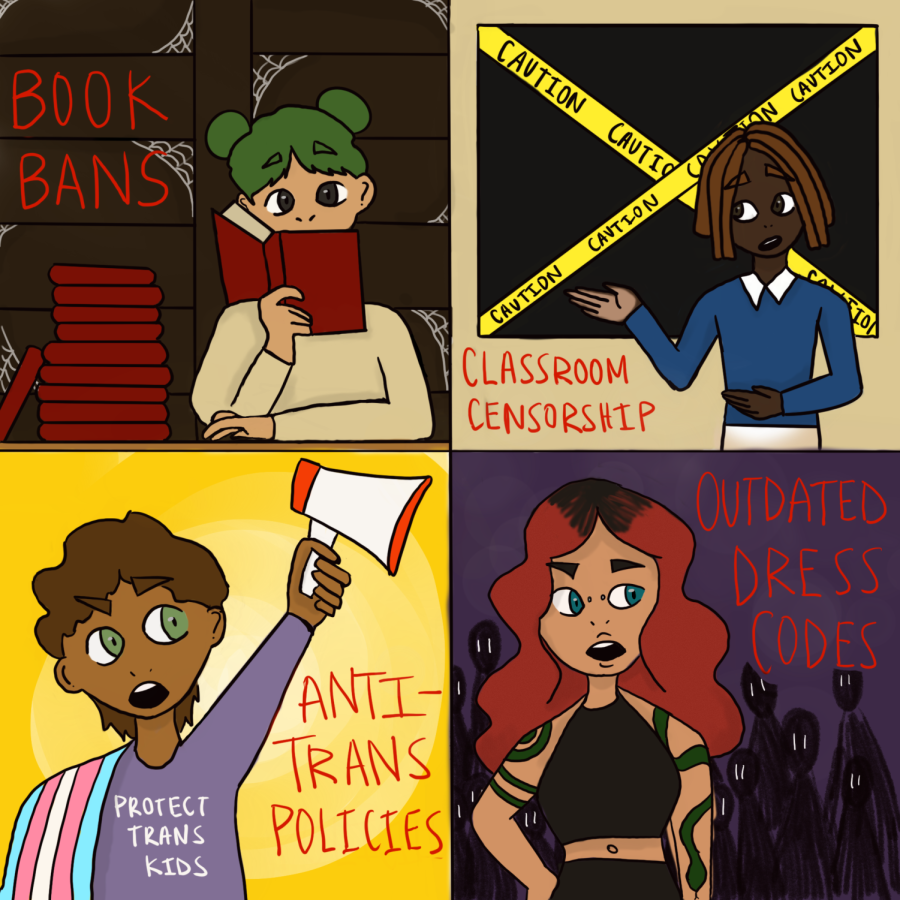ACLU’s student rights hub empowers students to fight against discrimination, censorship
September 30, 2022
The American Civil Liberties Union created a centralized resource hub to encourage students to take action against discriminatory policies.
The ACLU published its Students’ Rights Hub on Aug. 31, which contains resources to inform students about their rights and how to take action against censorship and discrimination. Adri Perez, a policy strategist for the ACLU, said because of issues facing education in Texas right now, including high numbers of book bans and backlash against teaching critical race theory, putting resources in one place can help students better understand intersecting issues.
“It helps us become stronger when we’re able to see the full picture,” Perez said. “We have a government that is seeking to create chaos. … It’s intentionally meant to be disempowering to students.”
The hub contains three sections: witness, learn and act. In the witness section, students can watch videos of other students speaking on their passions. The learn section contains resources for students to educate themselves on classroom censorship laws and a toolkit to protect LGBTQ+ student rights. The act section includes ways to report discrimination and how to speak at school board meetings.
Tatum Owens, the president of UT’s chapter of Texas Rising, said many young people who want to get involved in civic engagement do not know where to start.
“For young people who are looking to hold their schools and communities accountable, this resource is vital,” political communication senior Owens said. “You need to know your rights, that way you can defend them when they’re violated.”
Owens said she would have liked to see more resources included, such as specific city codes and state agencies, but because of the difficult language of laws, these resources might be confusing for students.
“The hub itself was kind of bare, but I think that’s also due to how jargony it can become otherwise,” Owens said. “State government can really be inaccessible to everyday citizens.”
Paul Cruz, a former Austin ISD superintendent, said the most effective way to initiate change is to start within a school and then take the issue to the district or state level. He said examples of students effectively fighting discrimination, like the one included in the hub, can help students learn what works.
If students do not feel included in schools, they will not perform their best, Cruz said.
“If you don’t feel safe in an environment, you can’t be your wonderful self and you can’t demonstrate your genius,” said Cruz, an education professor of practice.
The inaccessibility of laws makes it hard for students to take action, Owens said. As a high school student, movements like March for Our Lives kick-started her interest in civil engagement, but many of her classmates were afraid to skip class for walkouts because they feared administrative backlash. A list of student rights is included in the hub.
Despite feelings of powerlessness, all students have the power to create change, Perez said.
“I believe in, more than anything, helping other people to see the power that they hold and that they have always held,” Perez said. “I am helping (students) see the power they have because … they are the most impacted by the issue. They are the most influential part of this system.”












